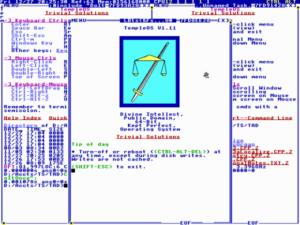what publishers should do
This article appeared in modified form on Boing Boing.
You can’t work at a book publisher for more than five minutes without someone telling you what publishers should do. (You know, “to survive.” “Be relevant.” Something.)
Even literary agents, who should know better, will get in on this action. One of the most prominent agents in New York, seated next to me at an event a few years back, took the opportunity to lecture me through the appetizer course on how book publishers should band together and “build their own Amazon” to sell books. Digital disruption = solved.
“Ma’am, you may have a point. You don’t, for All The Reasons, but let’s say you did. The book publishing industry is made of book people. Book people as a class pride themselves on knowing about everything—except computers, with a vengeance. They still edit 100,000-word manuscripts with pencils. I could count on one finger the number of people in this business who could program a coffee-maker. How in the world would the people in charge hire a single competent developer? If you’d seen the technological boondoggles, the 7-figure white-label ‘content management systems,’ these rubes have fallen for…”
If you really enjoy unsolicited opinions about what publishers should do, go work at Amazon to help build a New York book publishing imprint from the ground up. The book people who still talk to you afterward will be happy to tell you what you’re doing wrong. (Guys, I’m not working at Amazon anymore. Can we be friends again?)
All that said: I know what publishers should do.
You may be familiar with Temple OS, the computer operating system designed by Terry Davis on, according to him, God’s instructions.
At first, I wasn’t sure what to think. I didn’t have the technical knowledge to figure out what TempleOS actually was: A real, functioning operating system along the lines of Windows or Mac OS X? Or just a strange piece of software for making your screen look like DOS crossed with Be Here Now?
Worse, was Davis pretending with the God-talks-to-me stuff? Making a “statement” on something? Was this…art?
Calculated oddness masquerading as art is a pox on civilization—think Joaquin Phoenix in I’m Still Here or Crispin Glover’s infamous 1987 appearance on David Letterman.
More research on my part revealed that Davis, who admits to being schizophrenic and to having manic episodes, actually spent a decade building a functioning, though limited, operating system on the instruction of the Almighty. Among other things, it runs a program called AfterEgypt that allows the user to communicated with God through an oracle.
I won’t go further than that—others have written about TempleOS and you can see videos of Terry demonstrating it on YouTube.

It would be easy to dismiss Davis and his creation. Beyond the retro look of TempleOS and the apparent incoherence of much of the text, Davis himself sometimes says regrettable, even racist, things online, which may or may not be a symptom of his mental illness.
It would be easy to dismiss most things at first glance, though. Dismissing context, facts, and experience in favor of first impressions and easy answers—it’s kind of an American hobby in 2016.
Instead, what I wanted to call out was this thoughtful essay by software engineer Richard Mitton—it’s Mitton’s attempt to look at TempleOS as a work of programming, without any preconceived bias about religion or mental illness, without an angle or an axe to grind, simply as software. Gosh, is it a refreshing read in 2016:
There are many bad things to be said about TempleOS, many aspects of it that seem poorly constructed or wouldn’t work in the “real world”. I’m going to ignore them here. It’s very easy to be negative, but you will never learn anything new by doing so…
Perhaps we should instead look at TempleOS as a research operating system: what can be accomplished if you’re not locked into established thinking, backwards compatibility, and market demands.
What can we learn if we are only willing to listen?
For me, this is what publishers should do, whether they are publishing books, websites, conferences, or, well, operating systems: “Look at this. I’ll put a frame around it, because the creator cannot truly frame the work. Here is what you need to know to appreciate this. Here is how you should think about this. Consider.”
A good publisher is that amazing, life-changing professor from sophomore year at scale.
The need for this work—publishing—is more desperate than ever, and most book publishers don’t even bother to pay lip service to this essential role of their business.
Thankfully, technology makes publishers of us all, if we choose to accept the responsibility. Your blog can be your publishing house. Put together a Medium collection of your favorite essays on a subject, with commentary.
Don’t just share. Frame your selection. Offer rich, well-researched context. Stand over my shoulder and point out where I should direct my attention, what opinions and attitudes I should consider. Call out my preconceived notions. Challenge me to really look, really think, really learn, and judge for myself.
Today, I challenge you to go beyond the retweet. Find work—a notion, an argument, a story, a work of art—that excites you and challenges you and that you believe deserves broader attention, and give it a frame, some context, and a little push.
Publish.